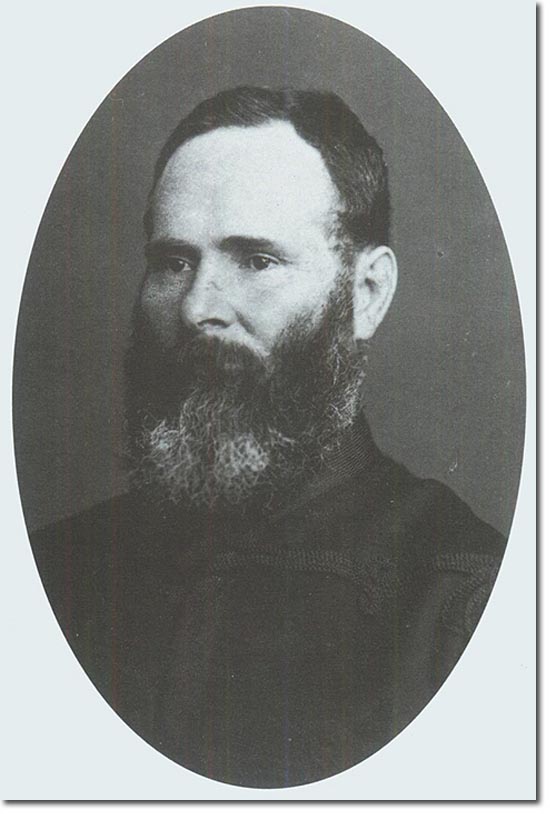|
|


|
|
James Dalton was Acting Assistant Commissary, an officer serving in the Commissariat and Transport Department which in 1888 became the Army Service Corps. He was a man of strong will and a driving force in the defence of Rorke's Drift. He was born in London in December 1832 so he was 46 at the time of the Zulu War.
He enlisted in the 85th regiment in 1849 and rose to the rank of sergeant, He transferred to the Commissariat Staff Corps in 1862 and left the army in 1872 as a senior warrant officer with 22 years service. He retired to South Africa and when the 9th Cape Frontier War broke out he volunteered. He was accepted in Dec 1877 and given a temporary commission, his commissariat rank was the equivalent of a lieutenant. He was in charge of the stores at Ibeka, a difficult and exposed place, and by his energy and efficiency he supplied food and equipment to the British columns in the field. He was mentioned in despatches for his good work. In January 1879 he was posted at Rorke's Drift to set up the stores depot along with Assistant Commissary Walter Dunne, Louis Byrne and Corporal Francis Atwood. When the news came that the camp at Isandhlwana was lost and the Zulus were on their way to attack Rorke's Drift, Chard, Bromhead and Dunne had to decide whether to evacuate the depot or fight. It was Dalton who galvanised the garrison. According to Dunne, 'Dalton, as brave a soldier as ever lived, had joined us, and hearing the terrible news said, "Now we must make a defence!" It was his suggestion which decided us to form a breastworks of bags of grain, boxes of biscuit, and everything that would help stop a bullet or keep out a man.' When the attack was in progress, according to Chaplain Smith, "Mr Dalton, who is a tall man, was continually going about the barricades, fearlessly exposing himself and cheering the men, and using his own rifle most effectively." But whilst firing at the attackers he was shot and badly wounded in the right shoulder. He was unable to continue and was laid down behind a pile of mealie bags. Surgeon Reynolds treated his wound after the battle, "The bullet entered about half an inch above the middle of the clavicle, then made its escape posteriorly at the lowest border of the trapezius muscle. The course taken was curious, regularly running round the shoulder and down the back, escaping all the important structures. After the slough came away the usual tenax was applied. The whole field medical equipment having been captured by the enemy at Isandhlwana, I had no antiseptic to use. I thought of quinine, which I knew was a wonderful preserver of animal tissues, and used a solution of that, experimenting in this case. It seemed to answer, as the wounds got on well after being injected several times with it." James Dalton was gazetted, on 17th Nov 1879, to receive the Victoria Cross. He was presented with the medal at Fort Napier, Pietermaritzburg in a special parade in his honour on 16th Jan 1880. General Hugh Clifford made the presentation. In October 1879 the 2nd Battalion, 24th Regiment, marched through the streets of Pietermaritzburg in triumph. Amongst the crowds, cheering them on, was James Dalton. When B company saw him they let out a great cheer. One of the soldiers had spotted him and shouted, "Why there's Mr Dalton cheering us! We ought to be cheering him! He was the best man there!" and he was hauled out of the crowd and made to march with them. He was also rewarded with a permanent commission as a Commissariat Officer but he went on half pay in December 1879 and returned to England. A few years later he went back to South Africa as a civilian. He spent Christmas with a friend in Port Elizabeth and fell ill. He died suddenly on 7th Jan 1887 and was buried in Russell Road Cemetery. |
Zulu War | Zulu War Significant Individuals
Armed Forces | Art and Culture | Articles | Biographies | Colonies | Discussion | Glossary | Home | Library | Links | Map Room | Sources and Media | Science and Technology | Search | Student Zone | Timelines | TV & Film | Wargames
